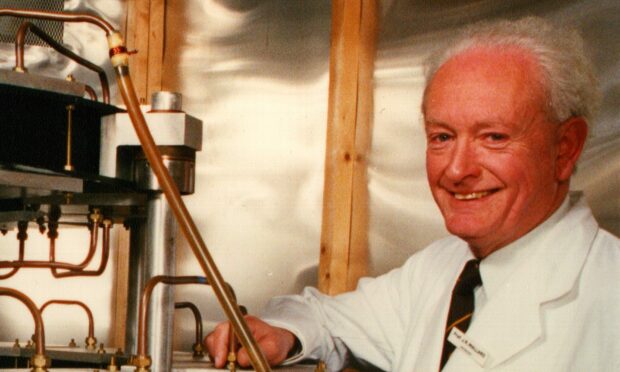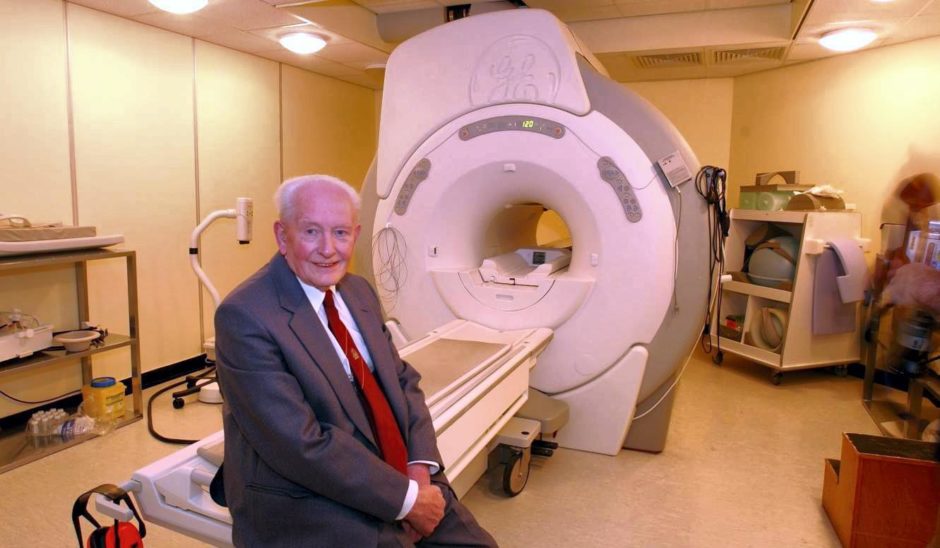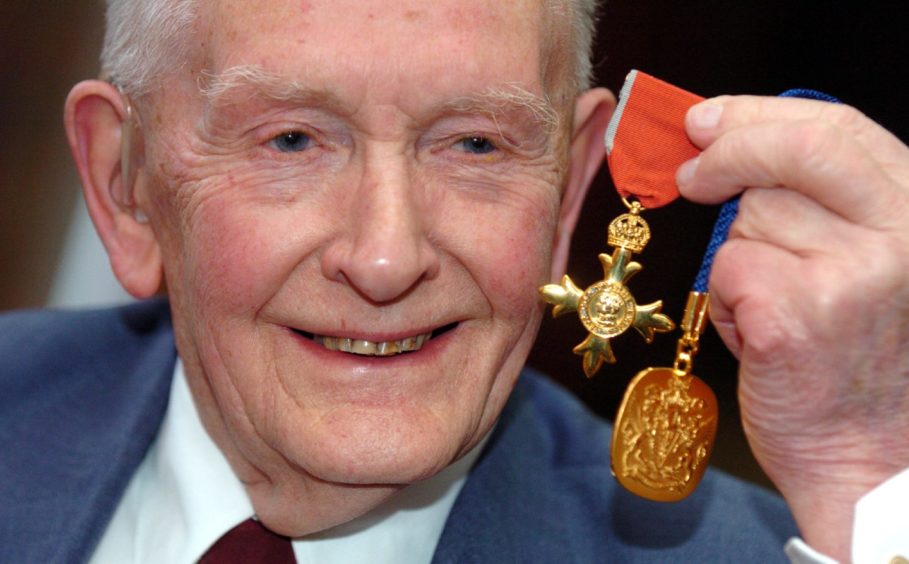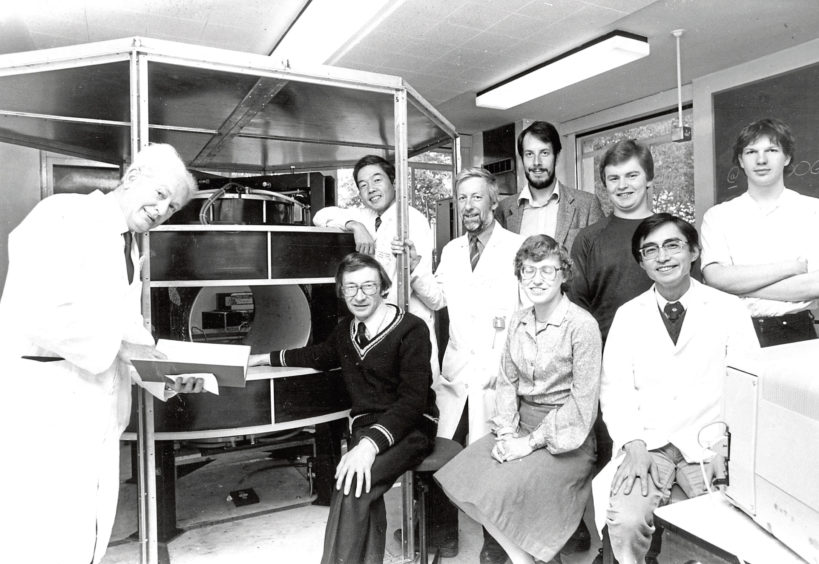A special event commemorating an Aberdeen scientist who pioneered the development of MRI scanners will be held next month.
Professor John Mallard, who died in February 2021 aged 94, led the team which built the first whole-body MRI scanner, transforming medical treatment around the world.
Now Aberdeen University has announced plans for a memorial event for him, bringing together family, friends, colleagues and the public.
The celebration is being held at King’s College Chapel, at the university, on August 19. Booking is now open.
‘Proud Aberdeen holds a place in medical history’
His children, John and Katriona, said he would have been deeply touched by the post-humous celebration in his “adoptive city”.
They said: “We hope as many people as possible will be able to join us either in person or online to pay tribute to his life and achievements, especially as funeral arrangements were very restricted due to Covid lockdowns.
“Our father was born and raised in Northampton and met our Aberdonian mother, Fiona, in London.
“When an opportunity arose at Aberdeen University, they were both delighted to be able to come ‘home’. It meant a lot to our father that he was able to make his MRI breakthrough in the city and he was very proud that Aberdeen holds a place in medical history.”
Legacy lives on
Prof Mallard has been widely celebrated across the city and was awarded an OBE in 1992, the same year he retired from the university.
He was also awarded the Freedom of the City of Aberdeen in 2004 for his pioneering work in medical imaging.
Prof Mallard – described as a “pioneer” – donated many of his medals and wards to the Aberdeen Medico-Chirurgical Society and these are on display at the Suttie Centre at Foresterhill.
At the time, the professor said: “My wife Fiona and I hope that the medals will serve as a permanent reminder of the terrific stir and excitement which the work here caused at the time, in the scientific and medical world.”
His contribution to medical imaging continued long after the development of MRI. He also led advancements other imaging technology such as Positron Emission Tomography (PET), knowing tools like this would become a powerful weapon in the fight against disease.
Medical imaging work continues
Aberdeen University’s principal and vice-chancellor George Boyne encouraged people to attend the memorial to pay tribute to his legacy.
He said: “Prof Mallard was a pioneer with a vision of what physics could bring to healthcare. The success of that vision can be seen in hospitals and treatments around the world today.
“His legacy is also keenly felt in Aberdeen. The University of Aberdeen continues to push boundaries in medical imaging with the development of the world’s first Field Cycling Imaging scanner, which is due to be operational and scanning patients within a new dedicated suite at Aberdeen Royal Infirmary in 2023.”



